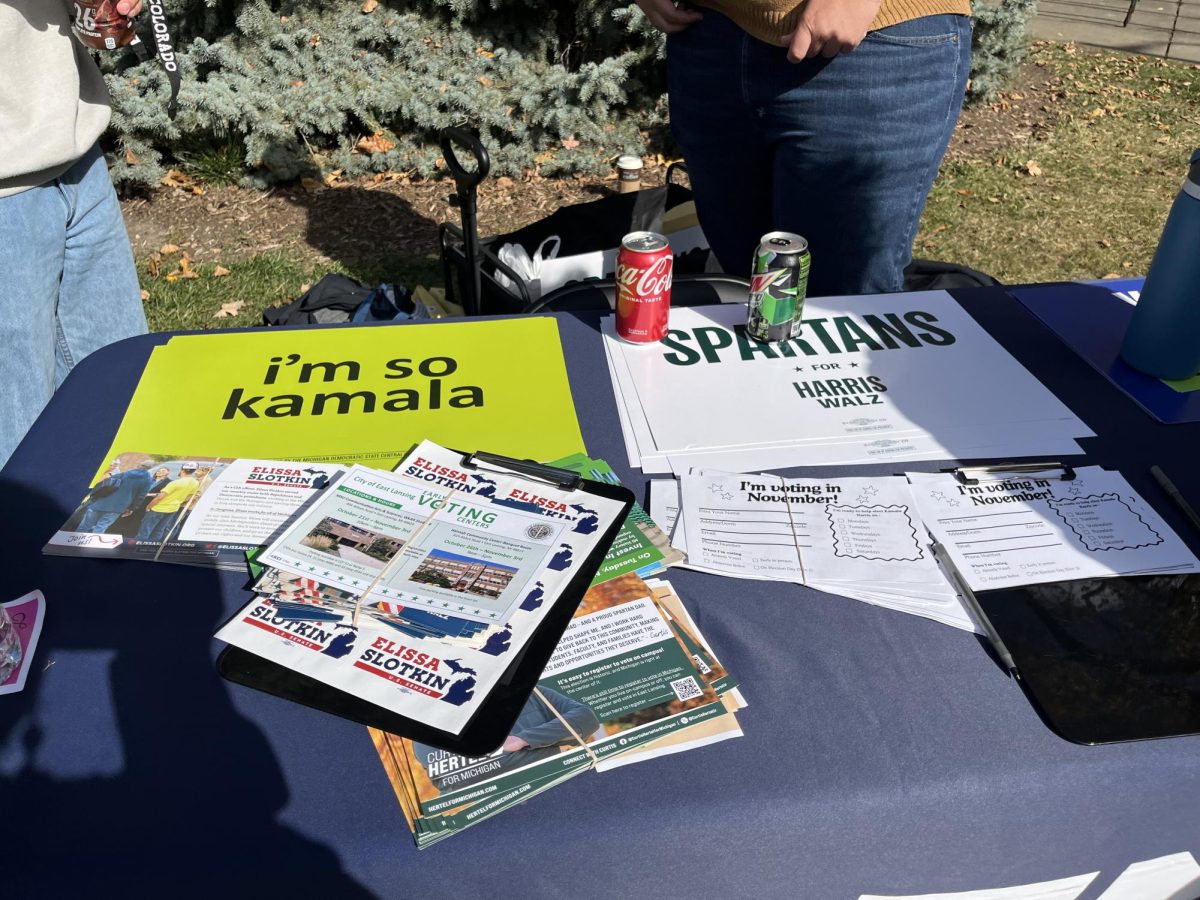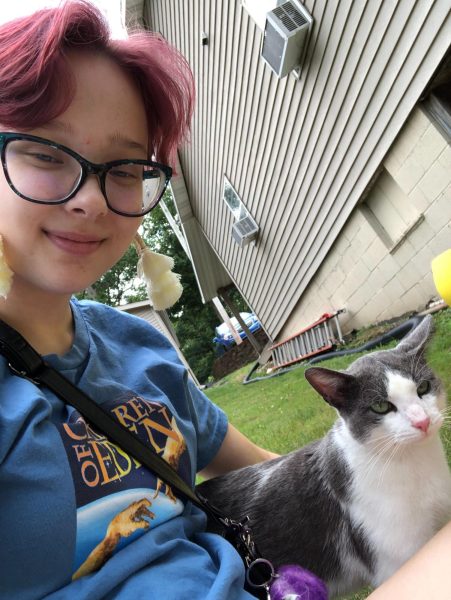Presidential candidates have focused on Michigan college students due to their heavy influence in voter demographics, including addresses to MSU students made by Democratic vice presidential candidate Tim Walz and Sen. Bernie Sanders.
Michigan is among only seven swing states won by less than three percentage points during the 2020 presidential election, making it a key battleground for the upcoming election in November. A recent poll determined that in Michigan, Kamala Harris only leads by 2%, and with a margin of error at plus or minus 3.2%, that’s a “statistical dead heat.”
This year, there have been nearly 40 events hosted in Michigan featuring presidential or vice presidential candidates, an uptick caused by the decline of the number of swing states.
Michigan voters are an important focus group this year, with nearly 40,000 MSU students who are eligible to vote. We asked MSU students about their views on the election, where their vote might lie and how effective each campaign has been on them.
Jon Fogler is an undergraduate sophomore studying kinesiology who identifies as right-leaning. He intends to vote for Donald Trump in the upcoming election and brought up his concerns with national security.
“I’ve been following [politics] a little bit, especially on the news while I was watching the debates and stuff,” Fogler said. “One big issue for me is a lot of the illegal immigration going on; not securing it, not doing what we can for it. And [another issue is] multiple wars going on overseas right now. [They’re] sending way too much money, I feel, like a couple billion dollars to Ukraine. I think we should be using it here in America to benefit the citizens.”
In total, Congress has passed five bills to allocate $175 billion to Ukraine in response to Russia’s invasion in 2022. The most recent of which was passed in April 2024, amounting to $61.3 billion.
“The Republican party–they do over exaggerate a lot,” Fogler said when asked about his critiques and praises for each party. “On both sides, spreading a lot of misinformation, way too biased on things. I feel like the Democratic party makes people feel like they belong no matter, say, their race. Not saying that the right doesn’t do that too, but they push it out more to people.”
Kaili Malts is a first year graduate student studying journalism. She attends MSU through the Fulbright Program and is an international student from Estonia, meaning she is ineligible to vote in the election. Malts emphasized the impact that this election has on the rest of the world.
“I’m not sure if the U.S. would follow its current policy regarding NATO, Ukraine and Russia the way they have under Donald Trump’s new presidency,” Malts said. “I don’t think that would stay the same because he’s made several speeches where he’s like: ‘we’re gonna leave NATO and we’re gonna stop support to Ukraine,’ which is very dangerous to European politics especially Eastern European politics where I’m from. The way Harris and the Democratic party pushes aid to Ukraine and still wants to protect its NATO allies is what’s very appealing to me. I do understand the criticism when it comes to Middle East policies, I’m critical of that as well, but looking at the other option, I’m not sure there’s a lot we can do about that.”
Malts expressed where her vote would lie if she were able to cast one in November.
“I think I would vote for Harris,” Malts said. “I don’t even know why it’s a debate at this point; I would get it if we had same-level candidates on both sides, and it’s ridiculous that the polls are so close. I don’t know what you Americans are up to.”
Caroline Geer is also a first year graduate student, currently studying for a master’s degree in journalism with a concentration in environmental science and health journalism. She has been involved in politics and activism from a young age and this marks the second time she’ll be voting in a presidential election.
“It’s something I’ve cared about for so long in my life, it’s hard to not be involved,” Geer said. “In the last election I voted for Joe Biden and this election I’m gonna be voting for Kamala Harris. The alternative is significantly worse. I consider myself more toward the element of a Socialist rather than a Democrat, but at the same time there’s that harm reduction in voting, particularly on a national level.”
The top three issues for voters this year include the economy, healthcare and Supreme Court appointments according to a survey conducted by Pew Research Center. Geer elaborated on another high-priority issue to young voters.
“Particularly I think about abortion rights,” Geer said. “That’s a big one, of course. Abortion rights was something I was thinking a lot about in 2020, and even under Biden that kind of went away. Do I think that things will necessarily get better under a Harris-Walz presidency? Not sure, but I know that it will get worse under Trump. It’s thinking about the worst case scenario rather than what I want.”
When asked why she thinks young voters may be unmotivated to vote, Geer cited a loss in confidence in the democratic system.
“I think a lot of people have just given up on voting,” Geer said. “I mean, every year there’s campaign promises that are forgotten, but I think the Biden campaign has especially dropped the ball on a lot of things that were promised in the 2020 election. Generally, there’s less of a confidence in our democracy, as we’ve had a series of elections and controversy around elections. The popular vote in 2016 was for Hillary Clinton, yet Donald Trump won. Then, in 2000, it kind of was a stolen election in some ways. I think that’s a lot of it, people especially in areas where they know their state’s gonna go one way or the other are like: ‘I may as well not vote, because I’m the opposite’.”
Eligible voters can visit vote.gov to register to vote in their state.











